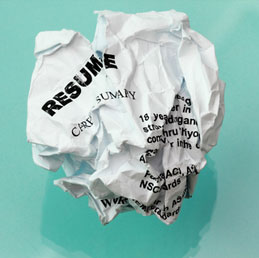
You can find a plethora of advice and articles that contain intermediate and advanced tips for improving your resume. However, sometimes it’s good to go back to the beginning and review some of the basics. Typos, misspellings and poor grammar will get your resume tossed much quicker than using passive language or not writing effective section headings.
Sometimes candidates get so focused on the difficult bits of the resume that they bungle some of the easy stuff. Here are a few very basic, but very common resume mistakes.
Can you spell your own name?
Okay, so I’ve never seen a resume in which the writer actually misspelled his or her own name.
Believe it or not, however, people misspell the name of their city and/or state all the time. Whether it’s just a typo, or you just moved to Mississippi and you still miss the occasional “s” or “p”, it doesn’t look good.
Don’t rush through the proofreading of your contact information – you’d be surprised what you might miss.
“Mr. Smith is outstanding candidate”
Many people make the mistake of writing their resume in the first person. For example, you should never say “I increased sales by 50 percent”. Resumes should always be written in the third person. However, writing in the third person and referring to yourself in the third person are very different things.
If you want to turn off a hiring manager, use the following summary as an example:
“John Smith is an outstanding leader with 20 years of experience in turning around underperforming departments. Mr. Smith has undergone extensive sales training and he is ready to put it to work for your company.”
That paragraph is perfect for someone else to write as a reference for you. However, you should remember that you are not your own reference!
Okay, now just hit the spellcheck key and you’re done!
Spellcheck is not a fail-safe. It will catch misspelled words, but it won’t recognize your grammar fouls. Grammar is a particular pet peeve of many hiring managers, so mixing up you’re & your, its & it’s, hear and here, their and they’re, to & too, and lose & loose will lose (not loose) you the interview.
We have extensive experience helping job candidates perfect their resumes, so whether you need basic or advanced assistance, please contact us. If you’re in the market for a new career opportunity, please take a look at our list of open positions.












